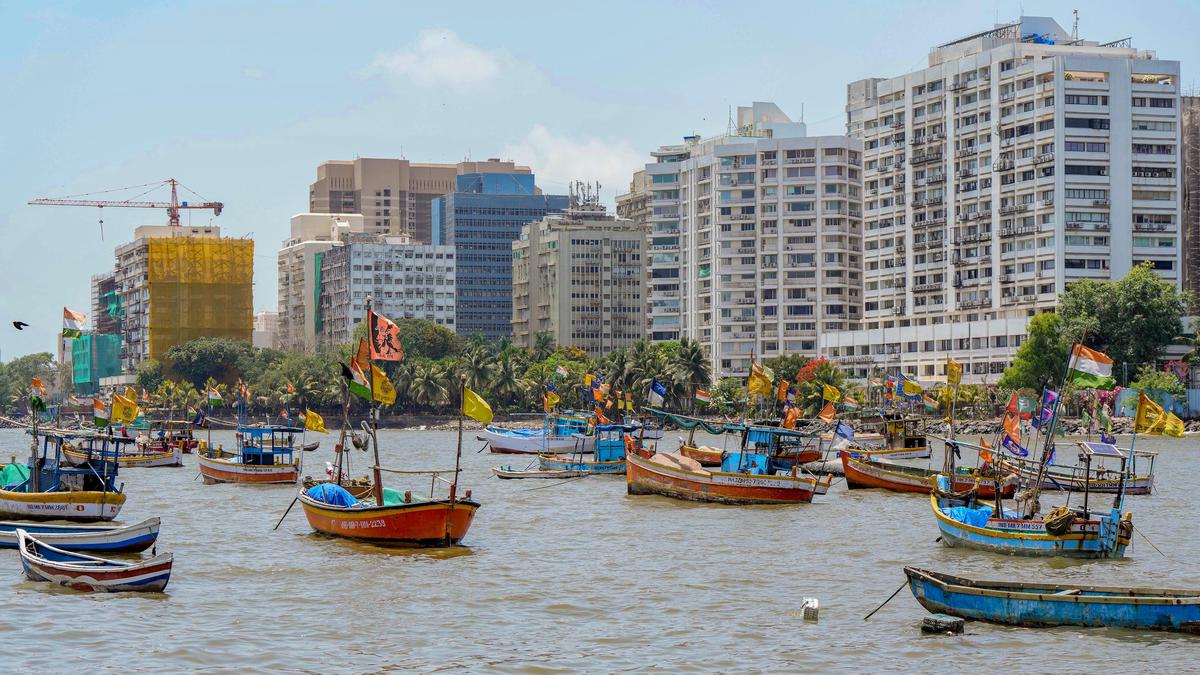
Cyclone Biparjoy rapidly intensifies into severe cyclonic storm
The Hindu
Cyclone ‘Biparjoy’, the first storm brewing in the Arabian Sea this year, has rapidly intensified into a severe cyclonic storm, with meteorologists predicting a “mild” monsoon onset over Kerala and “weak” progress beyond southern peninsular under its influence.
Cyclone 'Biparjoy', the first storm brewing in the Arabian Sea this year, has rapidly intensified into a severe cyclonic storm, with meteorologists predicting a "mild" monsoon onset over Kerala and "weak" progress beyond southern peninsular under its influence.
"Cyclonic storm Biparjoy (pronounced as “Biporjoy”) over east-central and adjoining southeast Arabian Sea moved nearly northwards with a speed of 2 km during the last six hours, intensified into a severe cyclonic storm and lay centred over the same region at 5.30 hours, about 890 km west-southwest of Goa, 1,000 km southwest of Mumbai, 1,070 km south-southwest of Porbandar and 1,370 km south of Karachi," the IMD said in an update around 8.30 a.m.
Season’s first cyclone takes shape in the Arabian Sea
Forecasting agencies said the storm has been undergoing "rapid intensification". Cyclone Biparjoy intensified by 40 knots (74 kmph) since Tuesday morning, according to the Joint Typhoon Warning Centre (JTWC), the U.S. Department of Defence's agency responsible for issuing tropical cyclone warnings for the Pacific and Indian Oceans.
Scientists say cyclonic storms in the Bay of Bengal and the Arabian Sea are intensifying rapidly and retaining their intensity for a longer duration due to climate change.
According to a study ‘Changing status of tropical cyclones over the north Indian Ocean’, the Arabian Sea saw a significant increasing trend in the intensity, frequency, and duration of cyclonic storms and very severe cyclonic storms during the 1982–2019 period.
"The increase in cyclone activity in the Arabian Sea is tightly linked to the rising ocean temperatures and increased availability of moisture under global warming. The Arabian Sea used to be cool, but now it is a warm pool,” said Roxy Mathew Koll, Climate Scientist at the Indian Institute of Tropical Meteorology and Lead IPCC Author.











